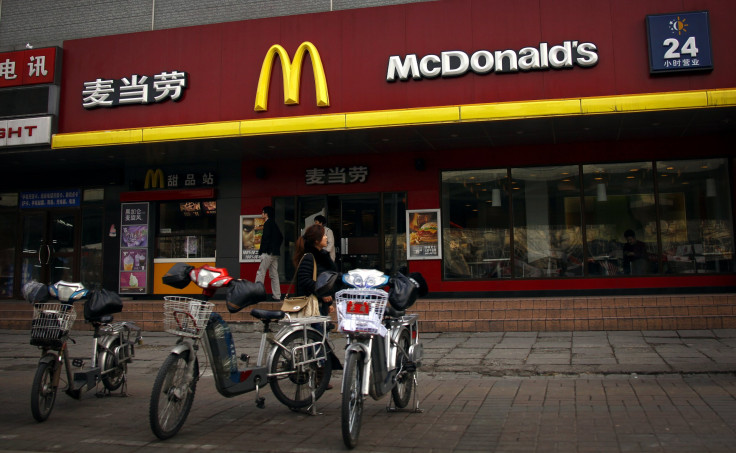China Hits McDonald's Supplier With Record Fine For Water Pollution Amid Signs Of Toughening Environmental Policy

SHANGHAI -- A company that supplies potato products to McDonald's fast food restaurants in Beijing has been fined 3.9 million yuan (about $629,000) for polluting local water supplies, in what state media said was the largest such fine ever handed down in the Chinese capital.
The fine, which comes soon after China pledged a nationwide cleanup of its polluted water supplies, was issued by environmental authorities to Beijing Simplot Food Processing -- a joint venture between McDonald’s, U.S. agribusiness J.R. Simplot and a local partner.
An inspection in November found organic waste above permitted levels in waste water released by the firm’s plant in the city’s Fengtai district, the official Xinhua news agency reported. It said that after the incident, which occurred while the firm was in the process of upgrading its sewage treatment facilities, officials ordered it to treat waste water at a processing plant. One local newspaper reported that a small amount of polluted water had entered the city's main water pipes, but this had not reached dangerous levels, according to the BBC.
Beijing Simplot, which supplies fries and hash browns to McDonald's and other fast food chains, announced that it had accepted the decision, cooperated fully, and paid the fine on time, according to Agence France-Presse. McDonald’s China also issued a statement saying that it took the issue "very seriously." The company said it expected all its suppliers to “comply with all relevant local laws and regulations" and said it would be monitoring Beijing Simplot's compliance in future.
Foreign fast food companies in China have previously been affected by a series of scandals involving food quality and safety, but this is thought to be the first time one has been fined for water pollution.
The Chinese government earlier this month announced a major clean-up of the nation's water resources, which it said would require an investment of some $220 billion over the next few years.
The country's new environmental law, passed earlier this year, also provides for tougher fines for polluters. Experts say the law is designed to give the country’s Ministry of Environmental Protection (MEP) more power to enforce policies, particularly at the local level, in an acknowledgment both of the nation’s severe environmental problems, and of public concern about them.
The city of Beijing has also pledged a general clean-up of its environment, including air pollution, as it seeks to win the right to stage the 2022 Winter Olympics. Xinhua quoted an official at the Beijing MEP bureau as saying that fines for polluting companies in the capital would be increased as much as fifteen-fold, in an effort to promote the city's "industrial restructuring."
And last month environmental regulators fined a subsidiary of China National Petroleum Corporation 100 million yuan ($16 million) for polluting a river in the northwestern city of Lanzhou last year, in what analysts said was an unusually stiff punishment for a company controlled by the central government.
The MEP also recently announced inspections of all factories producing paraxylene (PX) -- a product used to make plastic bottles and artificial fibers -- following an explosion at a PX factory in Fujian province, which led environmental group Greenpeace East Asia to warn that local groundwater could be polluted. Officials announced last week that the explosion had occurred because the company that owned the plant, one of China's largest, had "chosen the cheapest bidder to build the facility at the expense of safety."
Separately it was reported on Thursday that the former head of water resources in southern Guangdong province -- one of China’s most heavily industrialized regions -- had been placed under investigation for "discipline violations," usually code for corruption. And the MEP also announced this week that it was barring a number of environmental consultancies from carrying out impact assessments in future, after an investigation revealed cases of nepotism, bias and corruption at the local level.
© Copyright IBTimes 2024. All rights reserved.






















